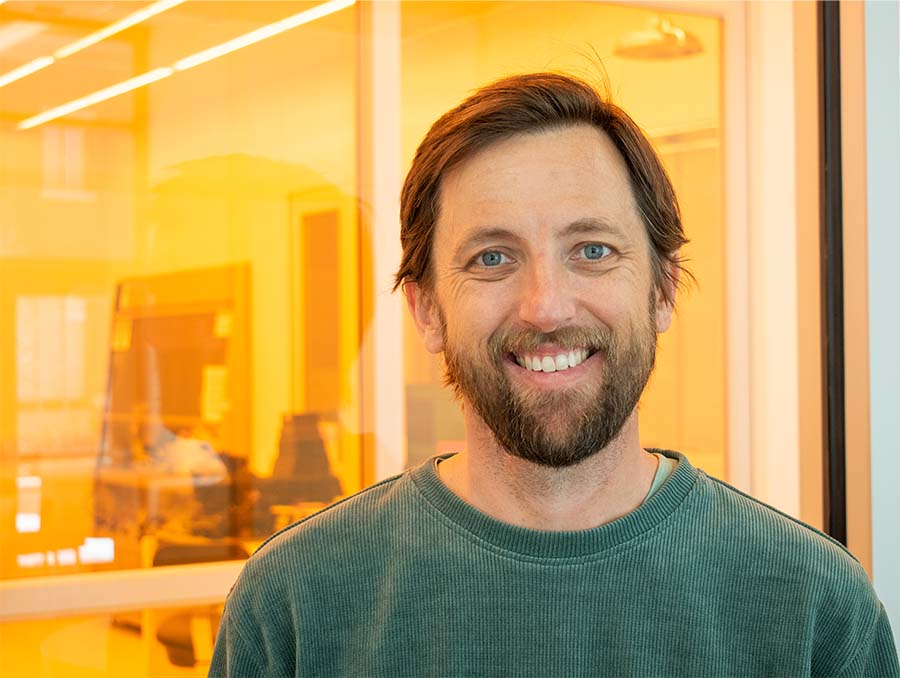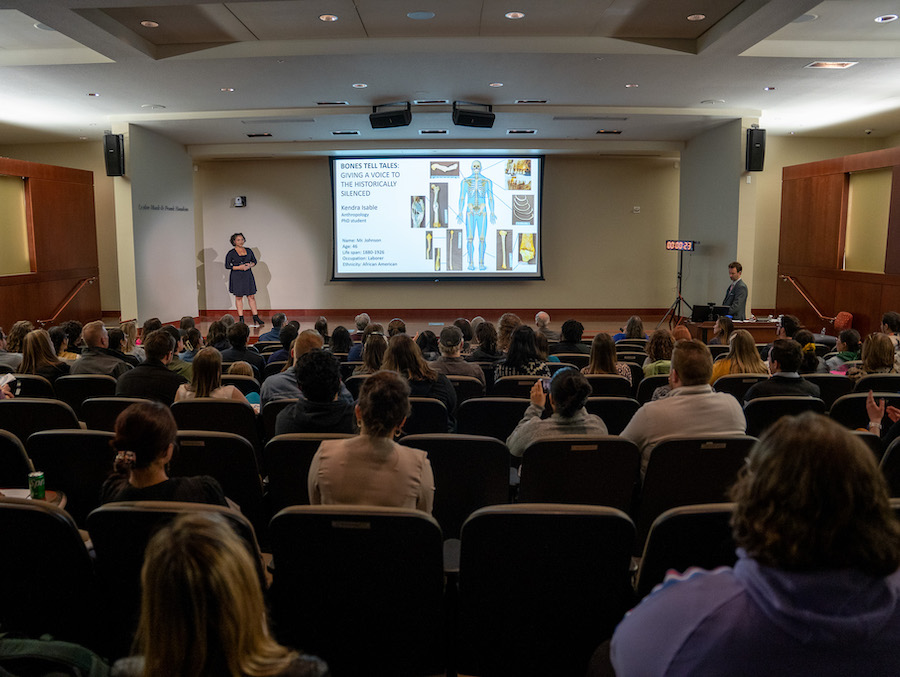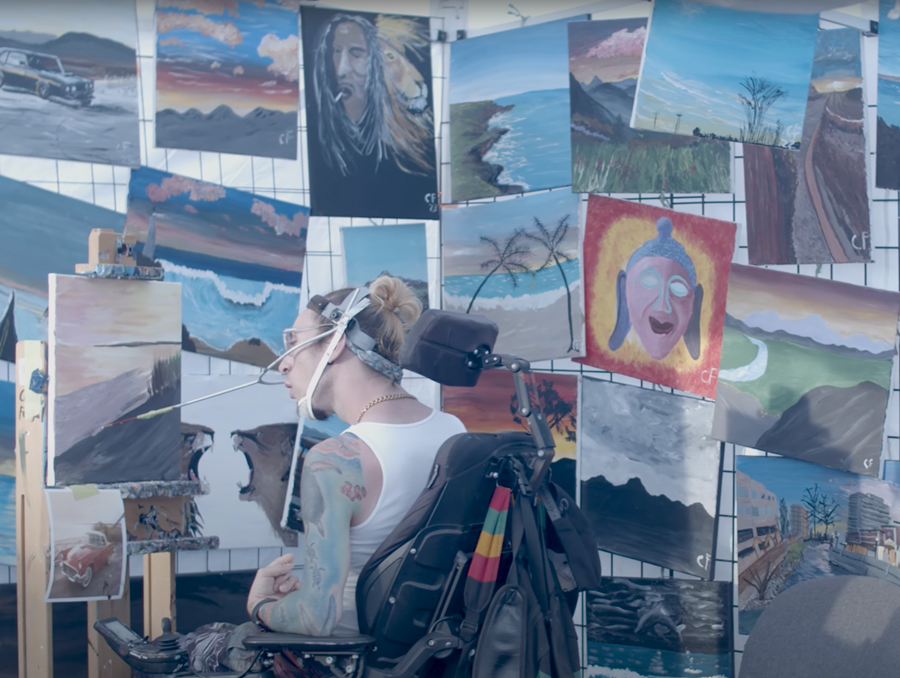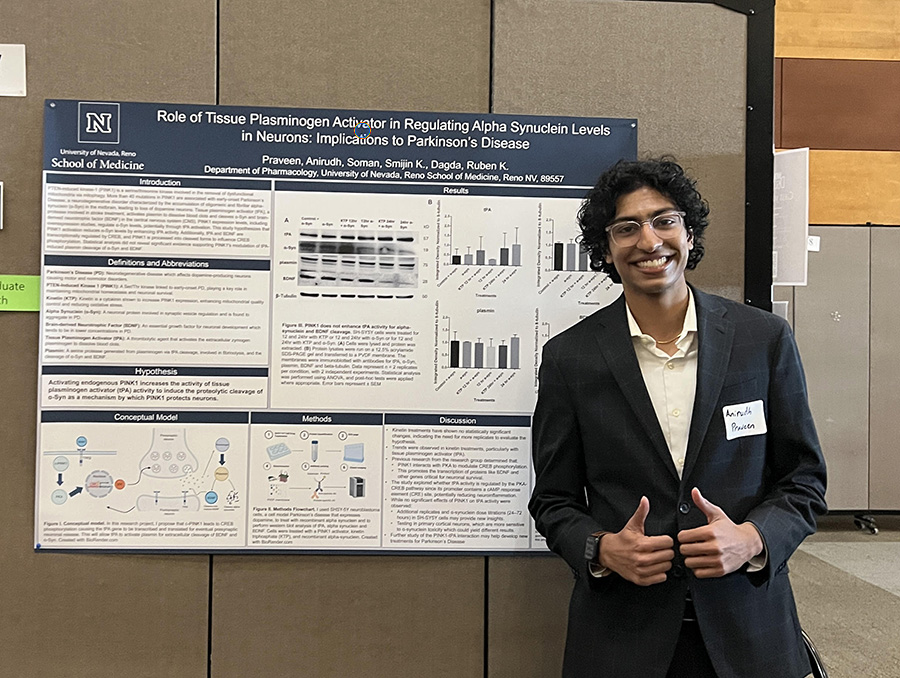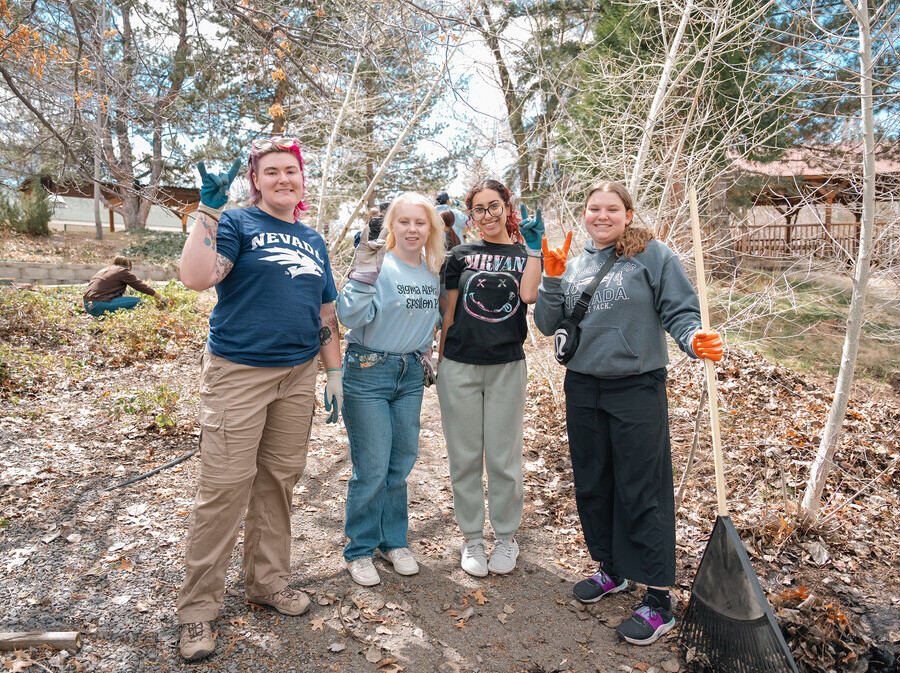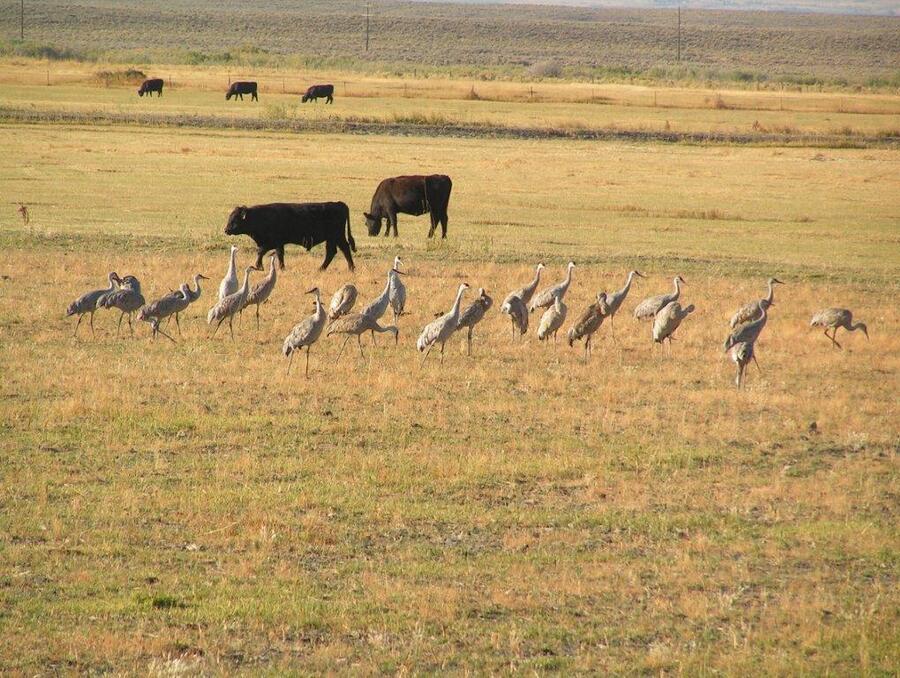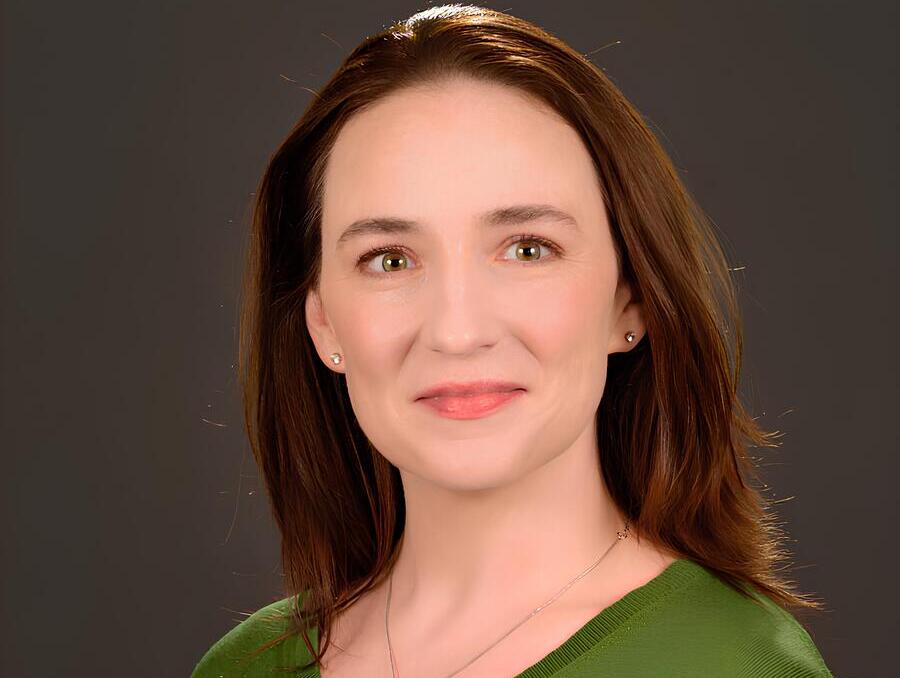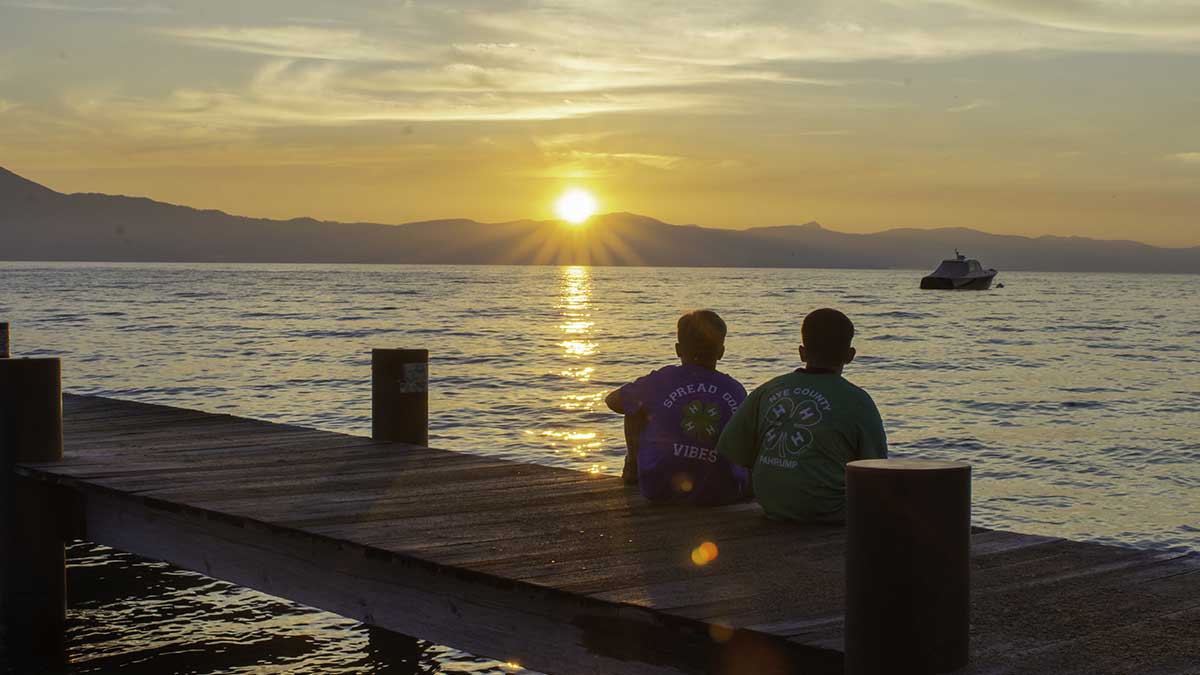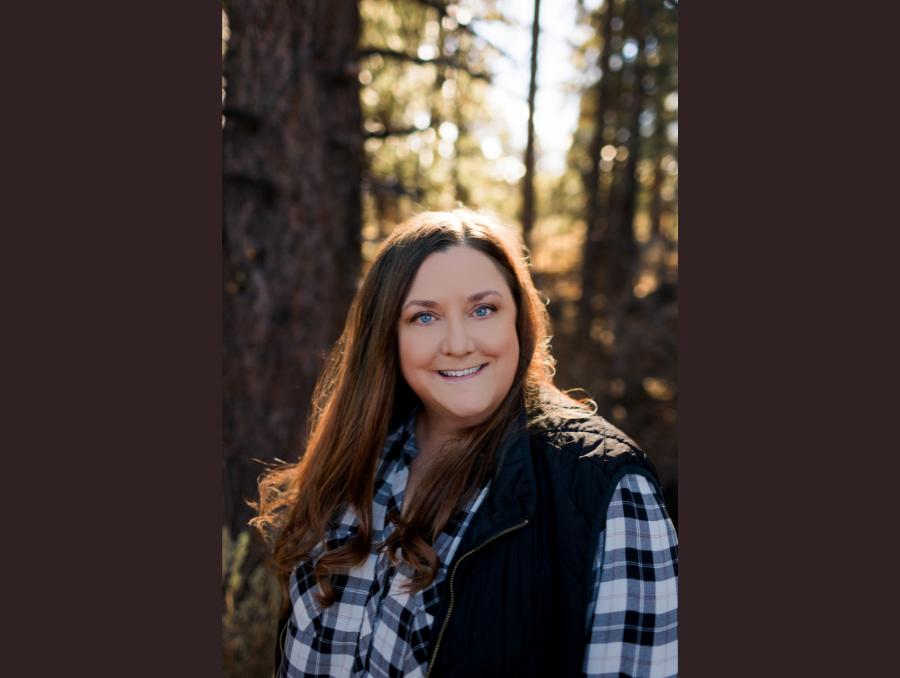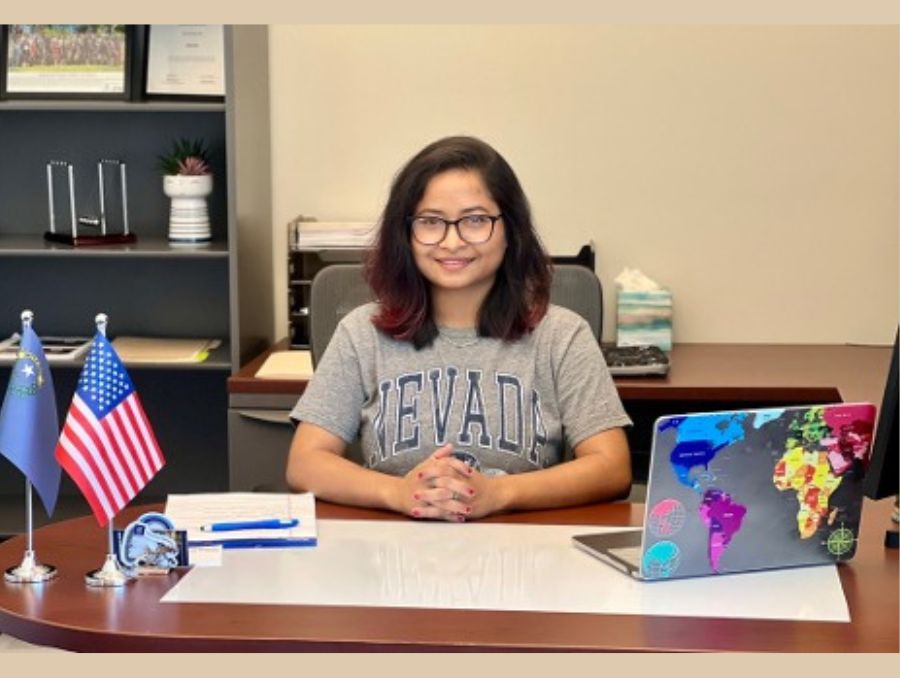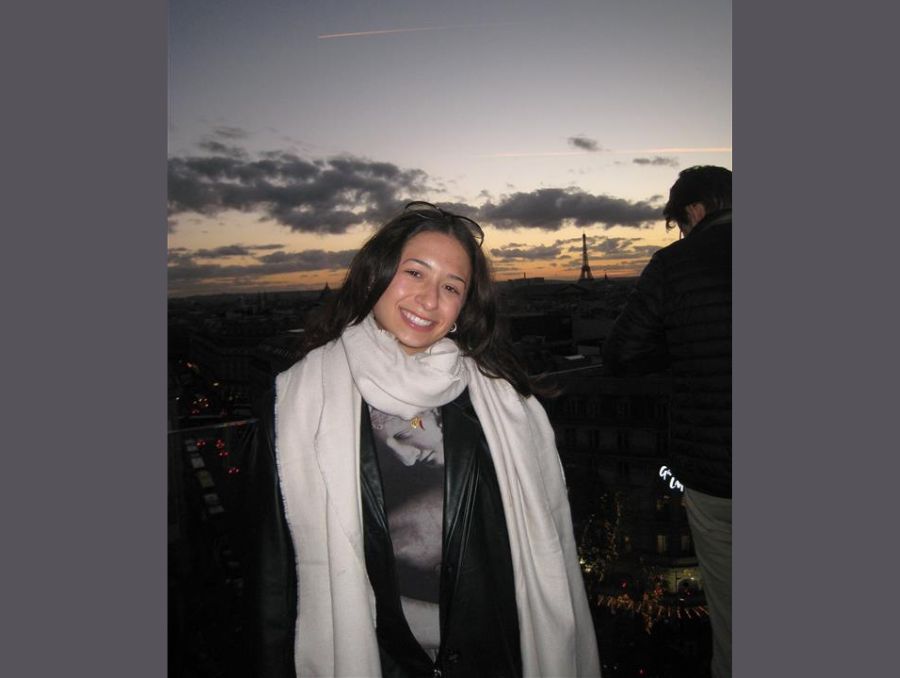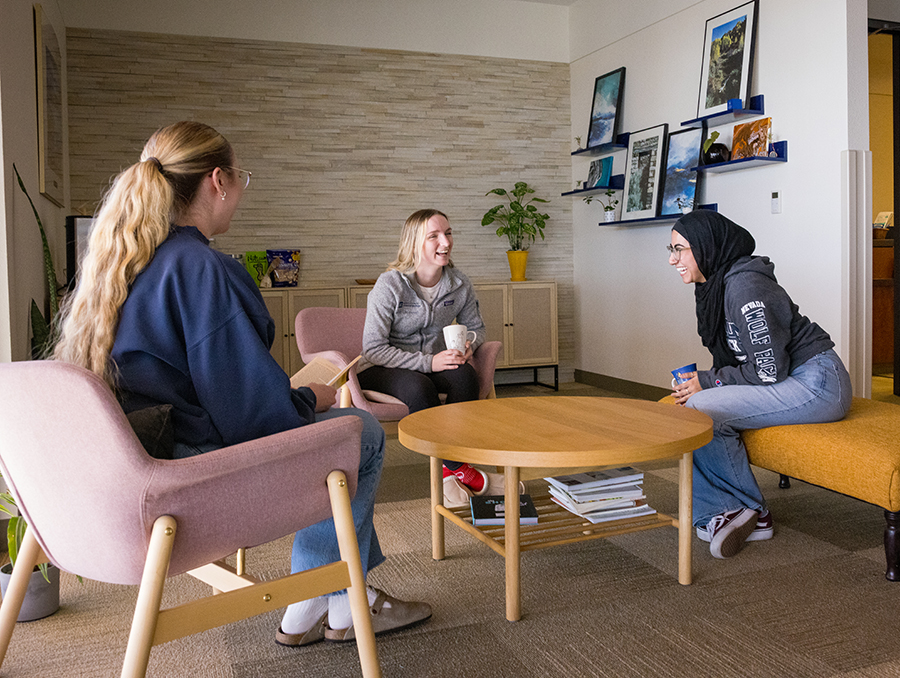Research into the origin of stars, the role of Omega-3 fatty acids in inhibiting cancer cell growth and the possible role of coyotes in spreading disease to domestic animals are three of the nearly 100 scientific, scholarly and creative works showcased in the annual Nevada Undergraduate Research Symposium Tuesday, April 19, at the University of Nevada, Reno's Joe Crowley Student Union.
Hosted by the University's Office of Undergraduate Research, part of the Office of Research and Innovation, the symposium highlights the research-oriented contributions of undergraduate students. While most of the presented projects were by University of Nevada, Reno students, the symposium extended the opportunity and included work by students at Truckee Meadows Community College, UNLV and Sierra Nevada College in Incline Village. Faculty members and researchers are involved as mentors to the undergraduates' projects.
Of the three-pronged role of land-grant universities, teaching and service are predominant in the undergraduate-student experience while research is typically thought of as being conducted by faculty members and graduate students. However, the opportunity to participate in research while still an undergraduate student is a hallmark of the educational experience at the University of Nevada, Reno.
Scott Mensing, director of the Office of Undergraduate Research, sees great value in opening this opportunity to undergraduates: "They begin to see that one of the functions of a university is to develop knowledge, to test knowledge. Research works at the edges of what we don't know. In classes, students mostly hear what we know, but the real education is developing those areas that we don't know. It's a whole different way of looking at education, and this is what happens as we explore new knowledge in our research, scholarship and humanities settings."
Nicole Haddad presented her research project titled "Real Foods Are Valued More Than Food Images." Haddad, a junior, has taken what she calls a winding path through college. She started in psychology, moved to neurosciences and is now pursuing a biology degree. The experience of working in labs and conducting research helped her discover an interest in cognitive brain sciences, which reflects her scholarly interests.
"It gives you more of a feel and it's an understanding you don't always get in the classroom," Haddad said of her research opportunity. "It definitely provides more interaction with faculty and fellow students."
Haddad conducts her research through the visual-perception lab of Jacqueline Snow, assistant professor of psychology. She hopes to contribute to the understanding of how snack foods are valued and, ultimately, to improved ways to promote healthy food options.
At the symposium, most of the showcased projects by University of Nevada, Reno students had been awarded funding through sources such as the federally funded Experimental Program to Stimulate Competitive Funding (EPSCoR) and the McNair Scholars Program, as well as the Nevada Undergraduate Research Award which is funded by ASUN, the undergraduate student government, and the University's Office of Research and Innovation.
While much of the work relates to the STEM fields, the symposium also showcased creative and scholarly works from departments such as English, art, political science and managerial sciences.
"We are encouraging creative arts, humanities and business," Mensing said. "We want students in all disciplines to be included and see their place."
Mensing, a professor of geography and an accomplished faculty member whose awards include the Nevada Professor of Year and the Regents' Teaching Award, was named director of the Office of Undergraduate Research in 2015. In this part-time role, Mensing guides the effort to add new research and creative opportunities for undergraduate students.
Mensing is excited to be launching a new international program this summer that will partner undergraduate students with research programs and labs in other countries. Participating students will be enrolled as independent study and receive scholarship support provided by ASUN. Plans are also in the works for a student from France to come to the University of Nevada, Reno through the program.
The Nevada Undergraduate Research Symposium opened with registration at noon, followed by keynote remarks by Ravi Subramanian, an associate professor of chemical engineering and the University's 2015 Outstanding Undergraduate Research Faculty Mentor, and student presentations in the Student Union's Theatre. The open-forum display of the students' posters continued through the afternoon in the Milt Glick Ballroom.
NevadaToday
Showcasing the high caliber, varied range of undergraduate research
Undergraduate students are already conducting cutting-edge research and scholarly work and, in many instances, receiving funding to advance their efforts
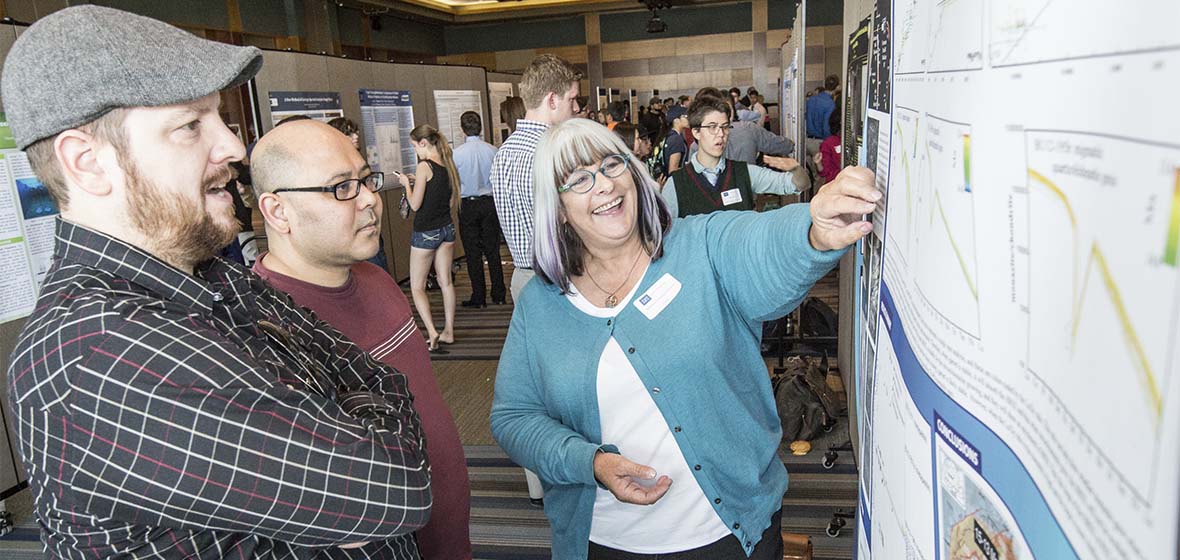
At the Nevada Undergraduate Research Symposium, Rebecca Gonzales-Clayton explains her geology-based research exploring the metamorphic history of rocks in the Himalaya mountain range.
